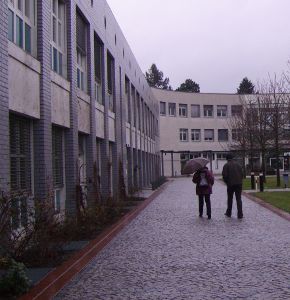 Ich geb’s zu: Bis gerade eben habe ich die Bedeutung des Jugendmediendienstestaatsvertrags — JMStV — nicht realisiert. Aufgeregt sprechen einige von chinesischen Verhältnissen, andere kündigen die Schließung ihrer Blogs an, wieder andere, bislang besonnene Gemüter, lassen sich zu antideutschen Ausfällen hinreissen. Jetzt soll alle Websites ihrer Inhalte mit »Altersfreigaben« markieren, damit die Jugend geschützt wird. Oder ihre »Sendezeit« auf Mitternacht verlegen — Haha, netter Hoax!
Ich geb’s zu: Bis gerade eben habe ich die Bedeutung des Jugendmediendienstestaatsvertrags — JMStV — nicht realisiert. Aufgeregt sprechen einige von chinesischen Verhältnissen, andere kündigen die Schließung ihrer Blogs an, wieder andere, bislang besonnene Gemüter, lassen sich zu antideutschen Ausfällen hinreissen. Jetzt soll alle Websites ihrer Inhalte mit »Altersfreigaben« markieren, damit die Jugend geschützt wird. Oder ihre »Sendezeit« auf Mitternacht verlegen — Haha, netter Hoax!
Ehm. Doch, so wie es oberflächlich scheint, so spinnt die tatsächlich, die politische Klasse — SPD und Grüne mitten mang dabei. [Update: dito die LINKE] Ab 1. Januar 2011 sollen alle Websites ihre Inhalte indizieren. Das erzeugt erstmal ziemliches Chaos. So ein Scheiss, dass man dafür überhaupt seine Zeit verschwenden muss, um sich damit zu befassen!
Na ja, wir bei keimform.de sind ja fein raus, denn auf uns trifft ja voll die Ausnahmeregel zu, da wir »Nachrichtensendungen [und] Sendungen zum politischen Zeitgeschehen« verbreiten, an deren Inhalten die Welt ein »berechtigtes Interesse« hat. Wie SpOn quasi, nur besser. Ist doch logo.
Oder wir gehen nach China.
 [Eine etwas ausführlichere Version dieses Artikel gibt es auch
[Eine etwas ausführlichere Version dieses Artikel gibt es auch 


